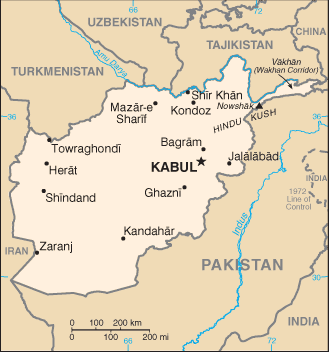
Special to The Hemp Report:

Draft Proposal - Afghanistan in the 21 st Century: sowing the seeds of
sustainable development, Spirit Aid
Click here to download. (PDF file 1.1MB)
The solution to Afghanistan's opium?
By Marc Deeley, Development worker,
Spirit Aid
Earlier this year the head of the United Nations drugs control agency said efforts to tackle Afghanistan's growing drugs trade were failing. The UK-based development agency Spirit Aid offers a radical solution to the problem.
During the 1990s, five or six provinces in Afghanistan were cultivating opium poppy.
Since the fall of the Taleban, that number has increased to 28 out of 32 regions. That is a major factor in worsening violence this year as people struggle to survive and fight for control of this illegal, socially damaging but lucrative resource.
Afghan farmers produce opium that is sold for some $2.3bn, according to United Nations estimates.
Its value is vastly inflated beyond that by the time it reaches its western consumers.
Despite this, Afghanistan remains one of the poorest places on Earth.
Collectively the farmers receive less than half a per cent of the wealth generated by their illegal crops. Much of the revenue ends up with local militias.
Environmentally friendly
The organisation I work for, Spirit Aid, has developed a plan to replace Afghan opium - 75% of the global supply - with industrial hemp.
Hemp is a fast growing, legal cash crop that presents a host of immediate benefits to Afghan society, including a potentially lucrative source of foreign exchange earnings.
Hemp can be used to produce heating and cooking fuel, thereby ending the need for people to cut down and burn their remaining forests during severe winters.
Using hemp in this way would also help prepare areas of land for future tree planting projects.
It is part of the same family as cannabis, and the leaves of the two are indistinguishable.
But there are other benefits to cultivating hemp.
Renewable energy
At the moment many Afghan children are malnourished. Hemp produces a fruit boasting the nutritional qualities of soya, oily fish and wheat combined.
Hemp can produce quantities of wood equivalent to four times that of trees over a similar period of time. This biomass can be used in the production of clean, renewable energy, biodegradable plastics and building composites.
Hemp is currently being grown for these purposes in 36 countries around the world, including Canada and some European Union countries.
If hemp could be successfully introduced in Afghanistan we believe that:
- Those who depend on the 90,000 hectares of land dedicated to opium poppies in Afghanistan would instead be able to cultivate industrial hemp to provide heating, shelter, food and would have an alternative source of revenue.
- Communities in the West would no longer be flooded with cheap heroin in this supply-driven industry.
- The world would become a cleaner, healthier and more secure place as the need to cut down old growth forests and burn the remaining oil, coal and gas reserves is reduced.
Unique opportunity
Industrial hemp is perhaps the only economically and environmentally viable alternative to opium cultivation in Afghanistan.
It presents an opportunity to satisfy the immediate fuel, fibre and monetary requirements of two million farming households struggling to survive in one of the most dangerous countries on earth.
Hemp cultivation also presents a unique opportunity for environmental improvement in Afghanistan.
Crucially the international community has a moral obligation to prevent a Colombian-style "war on drugs" from taking hold in Afghanistan because if this happens we can be certain the violence, and supply of opium, will never end.
Copyright © 2004 Marc Deeley. First published by the
BBC News on November 16, 2004. Posted on The Hemp Report by permission.
For more on Marc Deeley please see:
Cannabis: an environmentally and economically viable method for climate change mitigation(revised 2001), The Hemp Report, Summer 2001.

![]()

![]()